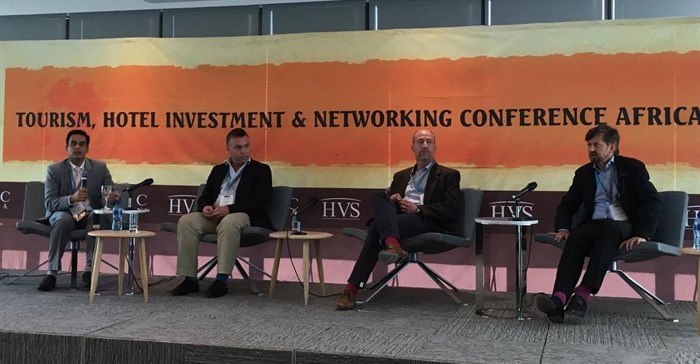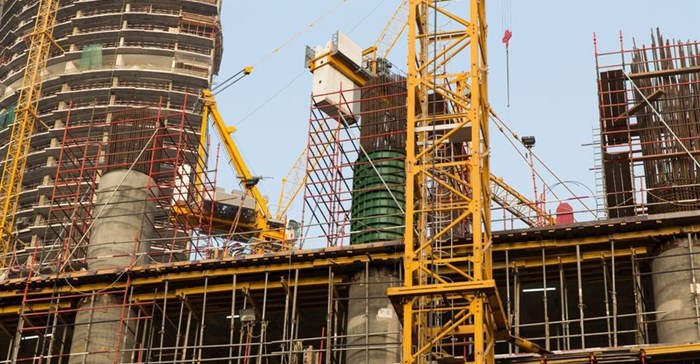#THINCAfrica: Dealing with hotel development challenges in Africa

The essentials of programming management
Lategan highlighted the importance of programming and time and how research, development and signing off of projects play a crucial role in the management of allowing sufficient time for projects. For the most part, according to Lategan, projects in Africa tend to fail without going through these processes, and it’s important to adhere to these golden rules and not overlook them.
Another aspect that Lategan noted was that expectations from architects, brands, and banks, etc. needs to be managed accordingly as a lot more changes can happen on site, with overruns and unhappy investors. “Everyone has been in that situation and we keep on putting ourselves in that sort of situation and it really is unnecessary to be there,” says Lategan.
Giannone noted that it is dependent on the market that you’re in, to work with experienced operators and an experienced team, which could in turn fast track hotel development, especially in South Africa. In Africa, for example, the experience of teams and owners tend to be lacking, says Giannone. Questions like 'is the site suitable', 'what are the technical requirements', 'what are the infrastructure supplies needed', needs to be asked to determine the efficiencies required to develop at a lower cost, if possible.
From a design perspective, Moren commented that hotels embarking on projects without a mock-up could create problems. It’s important to advise the brand on the whole purpose of the team – this will impact the programming time, taking into consideration the issue of procurement and where materials will come from. “The more testing you can do in terms of material and mock-up, the better it is,” says Moren.
Procuring material in Africa
Procurement is always going to be a challenge, says Giannone. The cost of raw materials manufactured in South Africa, for example, has a direct effect on the cost of delivering the product. Proper planning through all the various stages, including import variables, going into your finishes, equipment, customs, and logistics – adding enough time to not end up with delays and extra costs – all need to be taken into consideration.

On the impact of delivery costs overall, benchmarking the average development costs against other hotel developments, one needs to take certain factors into consideration – stages and development of projects across the continent and domain markets where the prices have begun going down and has become a bit more affordable, according to Giannone. Countries like Kenya, Ethiopia, Ivory Coast and Nigeria exist on the base costs of delivering exactly the same product in South Africa than in the aforementioned countries on the delivery of the hotel.
What one needs to take into account is the due diligences on hotels going forward. Development costs that you don’t necessarily have and maybe wouldn’t experience in a city in Europe, for example, would need additional investments such as electricity, water supply, and sewage treatment.
Moren added that bad design is your biggest cost waster. When someone wants something "grand" and you don’t deliver a design that is efficient, that could be expensive.
Experience with brands
Lategan advises brands to not set their standard on a European one, especially in the African market, because very often the technology that is required is not always practical and cannot be supported, which in turn causes a lot of problems later for operators to manage. It is advisable to make the project more African proof, more practical and reduce costs because there is a lot of additional costs to consider over and above the brand's standard, whether it’s a sewer connect or power plant.
Giannone, however, notes that brands have become more flexible compared to the past in terms of adapting standards to what the local market is.
Trends to consider in the African, European perspective
Use design, make it special, make it unique.
People enjoy the local experience, says Moren. Guests are looking for experience in hotels and not just staying in rooms. Locals that live nearby and that would want to use hotel facilities need to be considered as well, so operators should think of local design and what’s going to make the hotel be particular to that space.
Moren provides three key points to consider:
1. What is the product you’re providing in your hotel? Guests want an authentic, home brewed experience, instead of a generic experience from elsewhere.
2. Brands are changing, so local design becomes important. “Use design, make it special, make it unique.”
3. Hotels can serve locals just as well as its guests. A hotel is in operation 24-hours a day, so pop-up opportunities can be created for surrounding businesses in collaboration with the hotel. Everyone should consider incorporating retail opportunities.
Related
Hilton expands in Ethiopia with DoubleTree hotels 20 Feb 2025 Hilton expands in Egypt with 25 new hotels 19 Dec 2024 Park Hyatt Johannesburg sets October 2024 grand opening 28 Aug 2024 Radisson expands across Africa, including Tanzania debut 2 Jul 2024 IHG Hotels & Resorts brings InterContinental luxury to Cape Town with Table Bay redevelopment 1 Jul 2024 Courtyard by Marriott launches in Africa with Casablanca hotel 26 Jun 2024

























